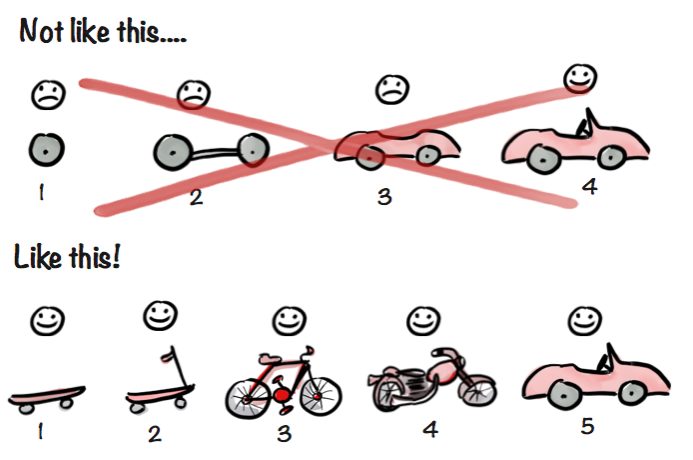MVP Development: Formula to Learn What Features to Build into Your MVP
Building a minimum viable product (MVP) allows you to efficiently get a product into the marketplace that solves your customer’s primary pain...

“MVP”
You hear that a lot in the tech world, and it doesn’t mean “most valuable player”. For the unaware, MVP means “minimum viable product”. Why do you hear this so often in tech?
The simple fact of the matter is, software can take a lot of time to develop. It can also cost a lot of money. The bigger and more complex the project, the more your development is going to cost. Since many app ideas are unproven, it often isn’t the best idea to dive into a product that is insanely complex, with dozens of sophisticated features. If you are on a limited budget, or bootstrapping your product, an MVP can be a great way to test the waters.
Did Facebook start off with the complex social network we know today? Did Google start with using Google Drive, and Docs, cloud computing, and self driving cars? Of course not. Almost all big tech companies started as something simple. Or at least something simpler than they are today. [inlinetweet prefix=”” tweeter=”@DesignliCo” suffix=””]People liked the core idea of these products, and it helped these companies gain traction.[/inlinetweet]
Here’s a parallel to the idea of using an MVP. If you are a chemist testing a theory, you are supposed to test one thing at a time. Would you mix two acids together in an unclean solutions? No, because the water is contaminated, and you aren’t sure what role those contagion are playing in the reaction. The holds true with apps. If you have too many features, you aren’t really doing a good job of testing the main idea behind your app.
So, what makes a good MVP? Start simple. Rather than going into excruciating detail explaining this, I’ll show you a drawing. I did not come up with this drawing, but I have never seen anything that explains what a good MVP so accurately. I stole this from http://speckyboy.com/ which is a fantastic resource, and I highly recommend you check them out.

What does this image tell us? Start with a product that is simple, yet functional. A good example is applits.com which is a company I cofounded. The Applits website lets people submit their app ideas, and if they are popular, Applits will develop the app in exchange for ownership, and then share 15% of the revenue with the idea submitter. As your see it now, there are social login features, fancy navigation, a forum, a product development timeline, profiles, a point system, and a live feed of what users are doing on the site.
That all sounds pretty cool! But when we started, all we had was a list of ideas submitted, and voting. It was much less complex, but the idea was popular, so we added on features we knew our members wanted.
With that said, do you always need an MVP? No, I don’t think so. If you are funded with a large budget, and have proven the product in other ways, it isn’t always 100% necessary to go with a massively stripped down version of your product. Or, if you’re iterating on an existing product that you think you can execute better on, you might not have the luxury of building an MVP.
If you have questions about your app (or website) and whether or not you think you should have an MVP or not, reach out to us using our contact form at the bottom of http://designli.co.
That’s all for now folks!
Subscribe to our newsletter.

Building a minimum viable product (MVP) allows you to efficiently get a product into the marketplace that solves your customer’s primary pain...

In 2025, building an MVP looks very different from just a few years ago. Founders now have access to AI-assisted tools, rapid prototyping platforms,...

Building a minimum viable product (MVP) is a proven strategy for SaaS startups and early-stage founders. It allows you to launch faster, minimize...
Post
Share